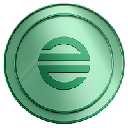-
 Bitcoin
Bitcoin $83,966.7716
2.55% -
 Ethereum
Ethereum $1,817.5394
1.91% -
 Tether USDt
Tether USDt $0.9994
-0.01% -
 XRP
XRP $2.1234
4.01% -
 BNB
BNB $596.5824
1.51% -
 Solana
Solana $122.9232
6.60% -
 USDC
USDC $1.0000
0.01% -
 Dogecoin
Dogecoin $0.1697
7.26% -
 Cardano
Cardano $0.6590
2.95% -
 TRON
TRON $0.2396
1.62% -
 UNUS SED LEO
UNUS SED LEO $9.5334
1.48% -
 Chainlink
Chainlink $12.9296
2.40% -
 Toncoin
Toncoin $3.3729
-5.68% -
 Stellar
Stellar $0.2583
0.47% -
 Avalanche
Avalanche $18.0805
0.95% -
 Sui
Sui $2.2737
2.80% -
 Shiba Inu
Shiba Inu $0.0...01222
0.72% -
 Hedera
Hedera $0.1651
2.88% -
 Litecoin
Litecoin $84.1844
2.53% -
 Polkadot
Polkadot $4.0329
0.57% -
 MANTRA
MANTRA $6.2618
-2.07% -
 Bitcoin Cash
Bitcoin Cash $299.0692
1.89% -
 Bitget Token
Bitget Token $4.5296
1.58% -
 Dai
Dai $0.9999
0.00% -
 Ethena USDe
Ethena USDe $0.9990
-0.05% -
 Hyperliquid
Hyperliquid $11.9987
4.67% -
 Monero
Monero $214.4963
2.32% -
 Uniswap
Uniswap $5.8942
2.56% -
 Pi
Pi $0.5243
-9.11% -
 Pepe
Pepe $0.0...07086
8.12%
What is DAO? How does it operate using smart contracts?
DAOs operate autonomously via smart contracts on blockchains, enabling community governance and transparency, but face challenges like smart contract vulnerabilities.
Mar 30, 2025 at 09:07 pm
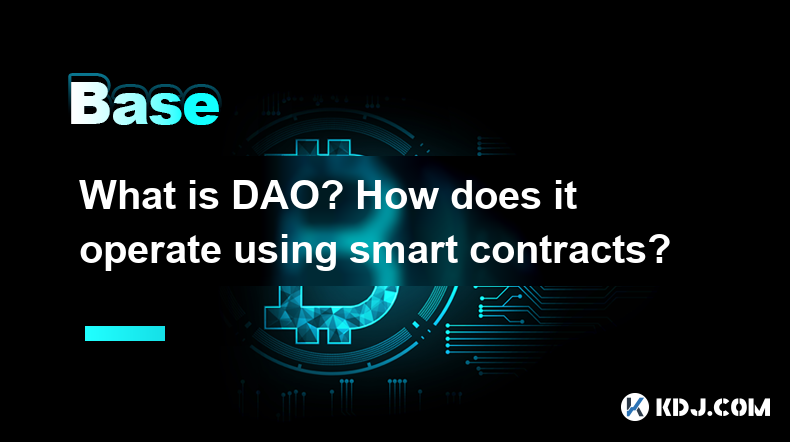
Understanding Decentralized Autonomous Organizations (DAOs)
A Decentralized Autonomous Organization (DAO) is a community-led entity without central leadership. It operates autonomously based on pre-defined rules encoded in smart contracts. These rules govern every aspect of the DAO's operation, from treasury management to proposal execution. Members participate through token ownership, granting them voting rights on proposals. Think of it as a digitally native, community-governed corporation. The lack of a central authority makes DAOs resistant to censorship and single points of failure.
Smart Contracts: The Engine of a DAO
Smart contracts are self-executing contracts with the terms of the agreement between buyer and seller being directly written into lines of code. They are crucial to a DAO's functionality. They automate processes, ensuring transparency and immutability. These contracts are deployed on a blockchain, making them verifiable and tamper-proof. The code dictates how the DAO functions, including member voting, fund allocation, and project execution. Essentially, the smart contract is the DAO's constitution.
How DAOs Operate Using Smart Contracts: A Step-by-Step Guide
Let's break down the operational flow of a DAO powered by smart contracts:
Proposal Submission: Members submit proposals outlining the desired action, such as funding a project or changing governance parameters. This proposal is usually accompanied by a detailed explanation and any necessary supporting documents.
Proposal Review and Voting: The proposal is then reviewed by the DAO's members. A voting period is initiated, during which members use their governance tokens to cast votes. The outcome is determined based on the pre-defined voting mechanism, usually a majority vote or weighted voting based on token holdings.
Smart Contract Execution: Once the voting period concludes, the smart contract automatically executes the approved proposal. This could involve transferring funds from the DAO's treasury, deploying a new smart contract, or initiating another action stipulated in the proposal.
Transparency and Auditability: All actions are recorded on the blockchain, ensuring complete transparency and auditability. Anyone can review the DAO's transactions and governance decisions, promoting accountability and trust within the community.
Dispute Resolution: Smart contracts often include mechanisms for dispute resolution. This could involve arbitration processes or escalation paths to external parties, depending on the DAO's specific rules. The goal is to provide a fair and efficient means of resolving disagreements.
Tokenized Governance: The Heart of a DAO
DAOs typically utilize tokens to represent membership and voting rights. The number of tokens a member holds directly correlates to their voting power within the DAO. These tokens can also represent ownership of the DAO's assets or provide access to exclusive benefits. The specific tokenomics are defined within the DAO's smart contracts. This ensures a fair and transparent distribution of power within the community.
Different Types of DAOs
The design and function of DAOs can vary significantly. Some DAOs might focus on specific projects, while others act as investment funds or decentralized autonomous organizations. The diversity of DAOs reflects the versatility of blockchain technology and smart contracts. The specific implementation depends on the goals and requirements of the DAO's founders and members.
Challenges and Limitations of DAOs
While DAOs offer many advantages, they also face challenges. One significant issue is the complexity of smart contract development and auditing. Bugs in the smart contract code can have severe consequences, potentially leading to the loss of funds or the compromise of the DAO's security. Another challenge is the potential for malicious actors to exploit vulnerabilities in the system. This necessitates rigorous security audits and robust governance mechanisms.
The Future of DAOs
DAOs are still a relatively new concept, but they hold immense potential to reshape how organizations are structured and operate. As the technology matures and adoption increases, we can expect to see more sophisticated and widely adopted DAOs emerge. Their potential to foster collaboration, transparency, and efficiency across various sectors is significant. The future of DAOs will be shaped by ongoing innovation in blockchain technology and the evolution of governance models.
Frequently Asked Questions
Q: What are the benefits of using DAOs?
A: DAOs offer several benefits, including transparency, immutability, community governance, resistance to censorship, and automation of processes. These features enhance trust, efficiency, and security.
Q: How secure are DAOs?
A: The security of a DAO depends heavily on the quality of its underlying smart contracts. Thorough audits and rigorous testing are crucial to mitigate vulnerabilities and prevent exploitation. However, no system is perfectly secure, and DAOs are susceptible to various types of attacks.
Q: Can anyone join a DAO?
A: The membership requirements of a DAO vary. Some DAOs might have open membership, while others might have restrictions based on token ownership or other criteria defined in their governance rules.
Q: What are the risks associated with DAOs?
A: Risks associated with DAOs include smart contract vulnerabilities, governance challenges, regulatory uncertainty, and potential for malicious attacks. Understanding and mitigating these risks is crucial for successful DAO operation.
Q: How are decisions made in a DAO?
A: Decisions in a DAO are typically made through on-chain voting mechanisms governed by smart contracts. Members cast votes using their governance tokens, and the outcome is determined based on the predefined voting rules. This ensures transparency and fairness in decision-making.
Disclaimer:info@kdj.com
The information provided is not trading advice. kdj.com does not assume any responsibility for any investments made based on the information provided in this article. Cryptocurrencies are highly volatile and it is highly recommended that you invest with caution after thorough research!
If you believe that the content used on this website infringes your copyright, please contact us immediately (info@kdj.com) and we will delete it promptly.
- Bitcoin's environment experiences fundamental shifts because Bitcoin halving combined with decentralized finance (BTCFi) changes how Bitcoin functions and shapes its marketplace
- 2025-04-05 04:30:12
- Arctic Pablo Coin (APC) Presale: ROI of 9084.48% and 66% APY Staking Rewards
- 2025-04-05 04:30:12
- Cosmos (ATOM) Token Defies the Dip With Nearly 10% Gains
- 2025-04-05 04:25:12
- Meme-Inspired Cryptocurrency Floki (FLOKI) Is Now Live on Robinhood's European Platform
- 2025-04-05 04:25:12
- Solaxy (SOLX) Price Soars Past $29M Market Cap as Its Presale Continues to Roar
- 2025-04-05 04:20:12
- With Q2 Now Underway, Crypto Investors Are Watching Closely for the Next Wave of Breakout Tokens
- 2025-04-05 04:20:12
Related knowledge
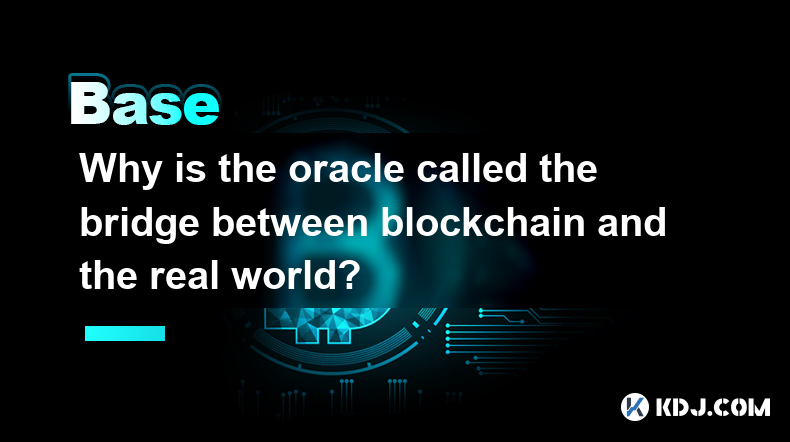
Why is the oracle called the bridge between blockchain and the real world?
Apr 04,2025 at 04:00am
The concept of an oracle in the cryptocurrency and blockchain world is crucial for understanding how these decentralized systems interact with external data. The oracle is often referred to as the bridge between blockchain and the real world because it serves as a vital intermediary that fetches, verifies, and transmits off-chain data to the on-chain en...
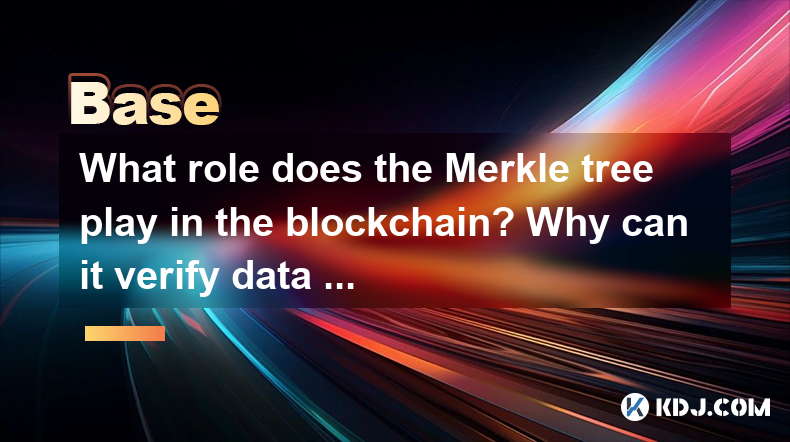
What role does the Merkle tree play in the blockchain? Why can it verify data integrity?
Apr 04,2025 at 01:29pm
The Merkle tree plays a crucial role in the blockchain, primarily due to its ability to efficiently and securely verify data integrity. This article will delve into the structure of a Merkle tree, its implementation in blockchain, and how it ensures the integrity of data. Understanding the Structure of a Merkle TreeA Merkle tree, also known as a hash tr...
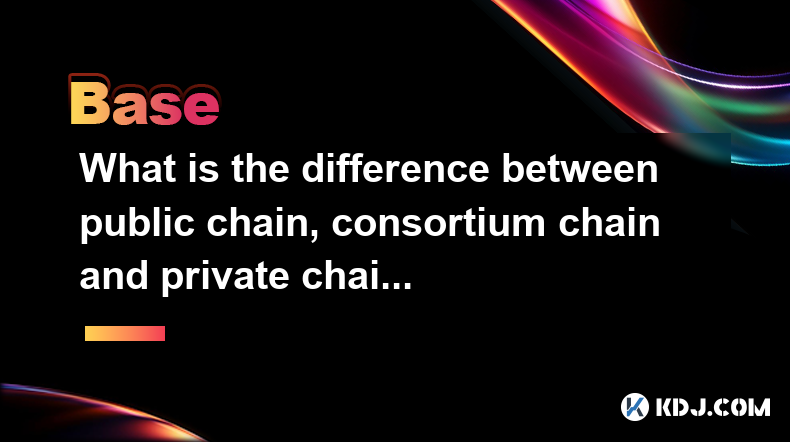
What is the difference between public chain, consortium chain and private chain? What scenarios are suitable for each?
Apr 04,2025 at 09:21pm
In the world of blockchain technology, understanding the differences between public chains, consortium chains, and private chains is crucial for selecting the right type of blockchain for specific applications. Each type of blockchain has its own unique characteristics and use cases, which we will explore in detail. Understanding Public ChainsPublic cha...
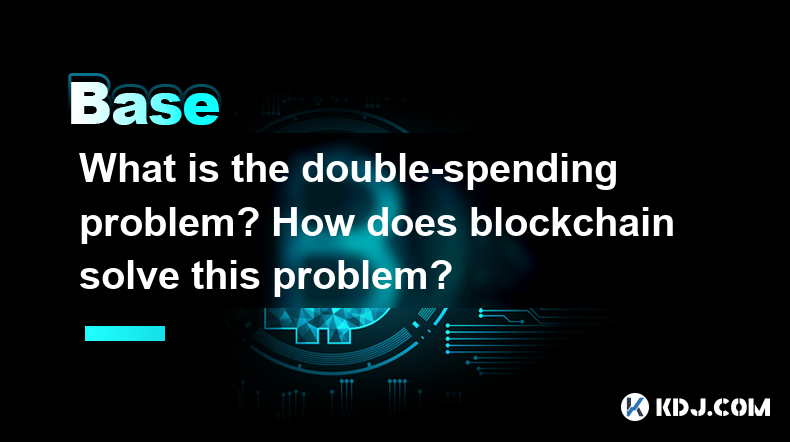
What is the double-spending problem? How does blockchain solve this problem?
Apr 04,2025 at 09:07am
The double-spending problem is a significant challenge in the realm of digital currencies. Double-spending refers to the potential for a digital currency to be spent more than once. This issue arises because digital files, unlike physical cash, can be easily duplicated. If not addressed, double-spending could undermine the integrity and trust in any dig...
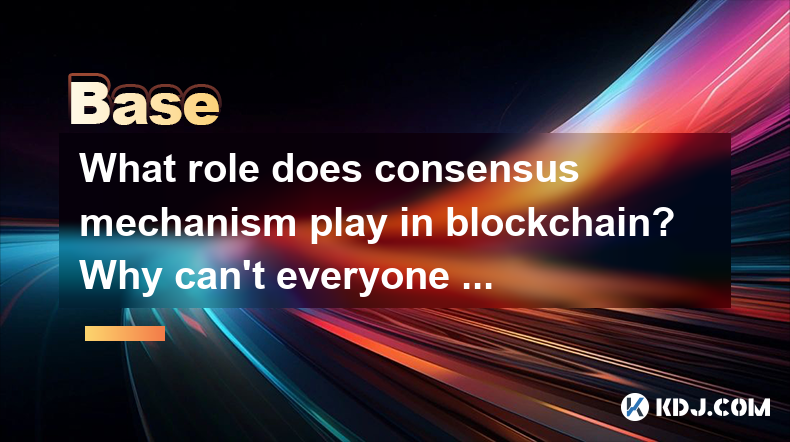
What role does consensus mechanism play in blockchain? Why can't everyone keep accounts?
Apr 05,2025 at 12:29am
The consensus mechanism is a fundamental component of blockchain technology, serving as the backbone for maintaining the integrity and security of the network. It ensures that all participants in the network agree on the state of the ledger, which is crucial for the decentralized nature of blockchain. Without a consensus mechanism, the decentralized sys...
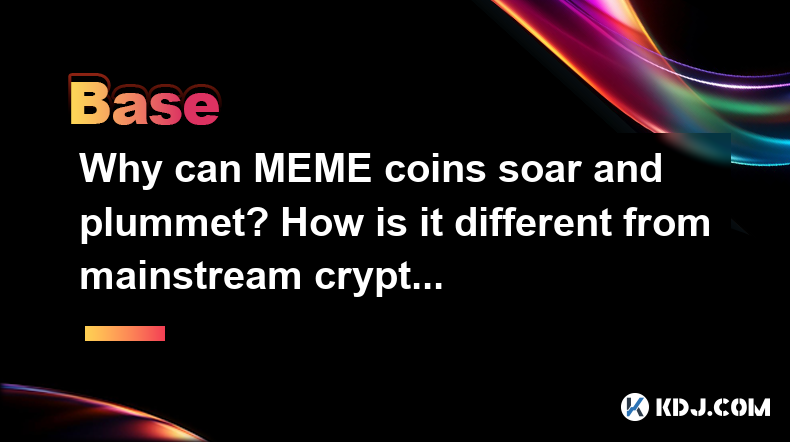
Why can MEME coins soar and plummet? How is it different from mainstream cryptocurrencies?
Apr 04,2025 at 03:07pm
The world of cryptocurrencies is vast and diverse, with a wide range of digital assets that cater to different needs and interests. Among these, MEME coins have carved out a unique niche, often experiencing dramatic price fluctuations that can both soar and plummet in a short period. This phenomenon, while intriguing, differs significantly from the beha...

Why is the oracle called the bridge between blockchain and the real world?
Apr 04,2025 at 04:00am
The concept of an oracle in the cryptocurrency and blockchain world is crucial for understanding how these decentralized systems interact with external data. The oracle is often referred to as the bridge between blockchain and the real world because it serves as a vital intermediary that fetches, verifies, and transmits off-chain data to the on-chain en...

What role does the Merkle tree play in the blockchain? Why can it verify data integrity?
Apr 04,2025 at 01:29pm
The Merkle tree plays a crucial role in the blockchain, primarily due to its ability to efficiently and securely verify data integrity. This article will delve into the structure of a Merkle tree, its implementation in blockchain, and how it ensures the integrity of data. Understanding the Structure of a Merkle TreeA Merkle tree, also known as a hash tr...

What is the difference between public chain, consortium chain and private chain? What scenarios are suitable for each?
Apr 04,2025 at 09:21pm
In the world of blockchain technology, understanding the differences between public chains, consortium chains, and private chains is crucial for selecting the right type of blockchain for specific applications. Each type of blockchain has its own unique characteristics and use cases, which we will explore in detail. Understanding Public ChainsPublic cha...

What is the double-spending problem? How does blockchain solve this problem?
Apr 04,2025 at 09:07am
The double-spending problem is a significant challenge in the realm of digital currencies. Double-spending refers to the potential for a digital currency to be spent more than once. This issue arises because digital files, unlike physical cash, can be easily duplicated. If not addressed, double-spending could undermine the integrity and trust in any dig...

What role does consensus mechanism play in blockchain? Why can't everyone keep accounts?
Apr 05,2025 at 12:29am
The consensus mechanism is a fundamental component of blockchain technology, serving as the backbone for maintaining the integrity and security of the network. It ensures that all participants in the network agree on the state of the ledger, which is crucial for the decentralized nature of blockchain. Without a consensus mechanism, the decentralized sys...

Why can MEME coins soar and plummet? How is it different from mainstream cryptocurrencies?
Apr 04,2025 at 03:07pm
The world of cryptocurrencies is vast and diverse, with a wide range of digital assets that cater to different needs and interests. Among these, MEME coins have carved out a unique niche, often experiencing dramatic price fluctuations that can both soar and plummet in a short period. This phenomenon, while intriguing, differs significantly from the beha...
See all articles



















































































